

Griselda Pollock
PUBLICATIONS
BOOKS
Griselda Pollock’s academic writing began with three commissions from Oresko Books for a book (1977) on the French artist Jean-François Millet (1814-75) the recent focus on an exhibition at the Hayward Gallery, London in 1975 marking the centenary of his death and a study of the American painter and printmaker Mary Cassatt (1844-1926), published in 1980 and the book that became Old Mistresses, co-authored with Rozsika Parker.
It was finished in 1979 but due the collapse of Oresko Books and its sale to Jupiter, publication was delayed until 1981. In the end Parker and Pollock had to buy themselves out and Philippa Brewster of Routledge loaned us the money to purchase back the images for the book for an amount which meant that all earned royalties were consumed paying off this debt (equivalent of £10,000) today.
Griselda Pollock also co-wrote with Fred Orton a anti-canonical study of Vincent Van Gogh that was to be titled originally Rooted in the Earth: A Van Gogh Primer which was pathetically retitled by the publishers Phaidon: Vincent van Gogh Artist of his Time, a disfiguring nod to the social historical, anti-mythic interpretation we were offering.
Griselda Pollock has worked with many different presses from Methuen (the original commissioner of Vision and Difference) to Phaidon and often with Routledge (working with supportive feminist editors such as Rebecca Barden and Natalie Foster) later with Manchester University Press and Thames & Hudson and finally in recent years with Yale University Press.
Her subsequent books chart her development of concepts for feminist analysis - Vision and Difference, Differencing the Canon, the Virtual Feminist Museum, Trauma and Aesthetic Transformation and Imagining Difference.
Her books after 1980 are therefore rarely monographs on artists.
Her two most important books that have a focus on one writer or one artist are her analysis of the monumental project Life? or Theatre? (1942) by Charlotte Salomon (1917-1042) 2018 published in 2018 and the reprinting and analysis in 2023 of refugee art historian Helen Rosenau’s remarkable feminist analysis of the history of art Woman in Art (1944).
Both these books demonstrate a transdisciplinary methodology involving close reading, deep visual analysis, and case studies informed by an expanding range of theoretical resources drawn from the many fields of feminist, cultural, and critical theories. Included in this list are books written for exhibitions of work by Bracha Ettinger, Christine Taylor Patten and one exhibition in 1980 on Vincent van Gogh’s Dutch period.
One important collection of her own articles and essays on art and film from the 1990s is title Looking Back to the Future while a collection of works written collaboratively and individually by/with Fred Orton is Avant-Gardes and Partisans Reviewed (1996) a product of their creative collaborative analysis of both later 19th century French modern art and early to mid-20th century modernism in New York art culture.

 |  |  |
|---|---|---|
 |  |  |
 |  |  |
 |  |  |
 |  |  |
 |  |  |
 |  |  |
 |  | 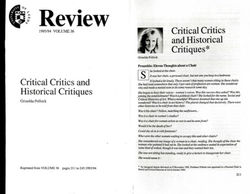 |
 |  |  |
 |  |  |
 |  | 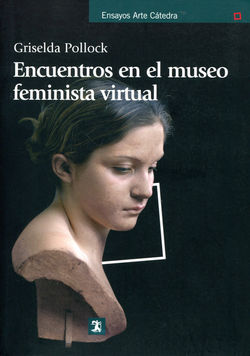 |
 |  |  |
 |  | 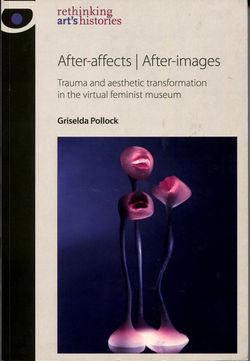 |
 |  |  |
 |  |  |
 |  |  |
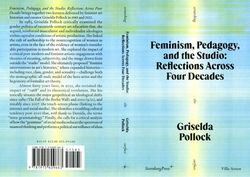 |
EDITED COLLECTIONS
Griselda Pollock has been involved in the creation of many edited collections starting with her collaboration with Rozsika Parker on feminist texts including the anthology Framing Feminism (1987).
The co-editing of Dealing with Degas (not about art dealing but managing the challenge of his work for feminist studies) was not a collaboration and there are editorial introductions by each editor marking the reality of contestation of method and ideology.
She guest edited an issue of the newly founded feminist journal differences honoured to have been invited by the brilliant feminist thinker Naomi Schor. Many of the edited volumes included emerging scholars as co-editors and as writers while her co-working with Canadian art historian Joyce Zemans was in homage to Canadian thinker Judith Mastai and she was delighted to co-editor with Catherine de Zegher on a critical monographic collection on artist Bracha L Ettinger.
In all volumes Griselda Pollock also provided chapters based on her own research and analytical procedures.
Founding a series as an art of the Centre for Cultural Analysis, Theory and History (initiated in 2001) New Encounters: Arts, Cultures and Concept, Griselda Pollock was inspired by Mieke Bal of ASCA (Amsterdam) and her advocacy of a concept of cultural analysis.
Two of these volumes involved younger scholars as co-editors and authors. The series continues to grow with monographs by individual scholars. Philippa Brewster, by then editor at I B Tauris played a major role in the development and support of this series.
With Professor of French Studies, Max Silverman, Griselda Pollock co-directed a five-year research programme titled Concentrationary Memories: The Politics of Representation that focussed on the concept of 'the concentrationary universe' (David Rousset,1946) as the symptom and site of totalitarianism in its widest sense.
Not side-stepping or ignoring the field of Holocaust studies in which both Pollock and Silverman were already involved as teachers and authors, this project traced across film, literature and popular culture the long-lasting imprint of totalitarian terror as well as identifying forms of aesthetically-formulated resistance to its infiltration of post-war society and imagination.
Four volumes have appeared, each with a major theoretical introduction and several with epilogues pointing to the contemporary resonances.
Berghan published two volumes and I B Tauris, now Bloomsbury the other two.
 |  |  |
|---|---|---|
 |  | 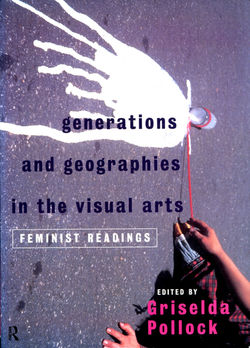 |
 |  |  |
 | 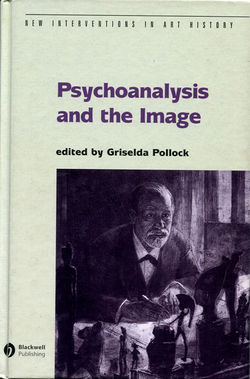 |  |
 |  |  |
 |  |  |
 |  |  |
 | 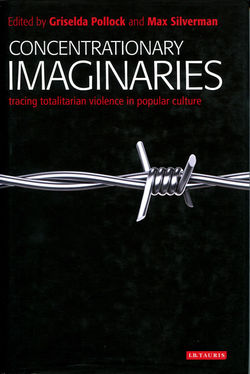 |  |
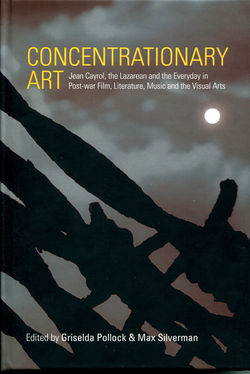 |
BOOK CHAPTERS & CATALOGUE ESSAYS
Over the last forty years I have been commissioned to write essays for over 40 exhibitions catalogues.
These reflect both deep and continuous study of specific artists over their long careers, engagements with ‘feminist interventions’ in terms of group or thematic exhibitions, and catalogue essays on artists I came to know better though these commissions.
The artists include Mary Kelly, Yayoi Kusama, Meret Oppenheim Sutapa Biswas, Bracha Ettinger, Bobby Baker, Lubaina Himid, Lily Markiewicz, Judith Tucker, Lydia Bauman, Mary Cassatt, Alina Szapocznikow, Sonia Delaunay, Louise Bourgeois, Alice Anderson, Maria Blanchard, Lynn Hershman Leeson, Sonia Delaunay, Georgia O’Keeffe, Isa Genzken, Yael Bartana, Chantal Akerman, Caroline Walker, Jo McGonigal, Sheila Gaffney, Monika Weiss, Ann-Sofi Siden ,Amedeo Modigliani, Henri Matisse, and Vincent van Gogh.
These engagements belong in the larger field of critical feminist readings of contemporary and historical art practices by women and of a few men. These catalogue essays are rarely monographic. I see to create a vocabulary adequate to the understanding of each practice, while building a conceptual field beyond the monographical and canonising operations of art criticism that none the less acknowledges the singularity of each project and practice.
MY ARTICLES
Starting from initial articles in the feminist monthly Spare Rib in 1974, Griselda Pollock has
written a considerable number of articles in art historical journals, feminist cultural journals, film journals such as Screen and Screen Education, that were open to interdisciplinary studies and critical theoretical approaches.
She made challenging interventions in the early issues of Art History and contributed to Third Text, Oxford Art Journal, Theory Culture and Society as well as specialist journals such as Mortality, parallax and the newly founded Journal of Visual Culture or
Journal of Visual Art Practice, to feminist journals such as differences.
A special issue of IMAGENES Journal of Visual Cultural Studies 7/2017 is a collection of essays about Griselda Pollock’s work.
Her articles have appeared in Canadian US -American, Latin American, French and Rumanian
publications.
These articles include studies of the US TV series The Wire and film posters for Dressed to Kill as well as writings on Artemisia Gentileschi, Elisabeth Siddall, Louise Bourgeois, Charlotte Salomon, Chantal Akerman, Pam Skelton, Bracha Ettinger, Yayoi Kusama, Claude Cahun, Lubaina Himid, Sutapa Biswas, Sonia Khurana and Tracey Emin.
Other articles are theoretical and historiographical, defences of the humanities and the complexity of thought, feminist analysis of the concept of the avant-garde, thoughts on feminist pedagogy, the state of art history and there is a steady output of articles both critical of the myth of Van Gogh and
analytical of his works.
Deborah Cherry, Fred Orton and Antony Bryant are co-authors of a few very important articles.
The range covers her deep engagements with methods, theories and concepts for the practice of visual, cultural and film analysis while also demonstrating the creativity of both her transdisciplinary practice and theoretically enriched practice of close reading.
Griselda Pollock has written 117 articles across the fields of art history, cultural studies, film studies, feminist theory that represent my work in feminist theory, trauma studies, contemporary art, Holocaust studies, pedagogy, histories of photography, class, race and gender.
Repeated centres of research include Chantal Akerman, Marilyn Monroe, the theories of Julia Kristeva, Matrixial Theory, representations of grief and death, theories of the avant-garde and specifically feminist avant-garde interventions, art historiography.
Articles on the films such as Jaws, TV series The Wire, the resistance to austerity, feminist art historiography, a feminist engagement with Aby Warburg, shame, Jewish feminist interventions form key topics along with a range of studies of specific artists, Yayoi Kusama, Louise Bourgeois, Mary Kelly, Bracha Ettinger, Pam Skelton, and of PreRaphaelitism, abstract painting and feminist-inflected art practices.

